Post-pandemic uncertainty: Will learning Arabic in the Middle East become a thing of the past?
The explosion of 2.7 tons of ammonium nitrate at the Beirut port resulted in more than 200 deaths, 7,000 injuries, and left 300,000 people homeless.
Situated less than one kilometre from the explosion, Lebanon's most prominent language school, Saifi Institute for Arabic Language, received the full force of the blast.
When Saifi was destroyed, the Arabic learning community held its breath. Setting itself aside from other schools, Saifi had come to embody the new direction that Arabic language learning had taken over the past decade.
Departing from the traditional teaching of the formal Arabic language, Saifi instead taught 'Urban Arabic' – the Levantine dialect, widely spoken in Syria, Jordan, Palestine and, of course, Lebanon.
With a Saifi class or two under their belt, students could immediately talk with their Lebanese friends and neighbours, they could listen to Levantine music and understand the lyrics.
Beyond merely a language school, Saifi was also a bar, shisha lounge, café, cultural space and hostel, and set a new bar for the experience language learners are looking for.
Whether you were an Arabic learner or not, there was hardly a Westerner who had visited Beirut and hadn't spent time at Saifi and with the charismatic Dirani family who ran it. It took only two blasts and less than one minute to destroy twelve years' work.
 |
It took only two blasts and less than one minute to destroy twelve years' work |  |
"We are left with broken businesses and broken souls," said Rana Dirani, Saifi Founder and CEO.
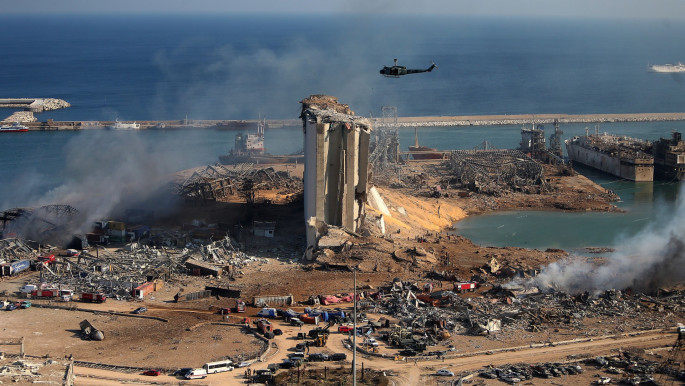 |
| Read also: Be angry, not just sad, for Lebanon |
Saifi's destruction came amid a more general crisis of Arabic language learning.
The coronavirus has halted international mobility, and language schools across the Arabic-speaking world have lost the majority of their students, as countries shut their borders and imposed strict lockdowns from the earliest days of the pandemic.
"I feel sorry for people trying to learn Arabic at this minute, they will be slowed down," said Margaret Nydell, a retired professor of Arabic and expert in dialectology.
The coronavirus pandemic has forced learners and teachers alike to consider different options for learning the language, such as online learning.
The destruction of the Saifi Institute in Beirut has highlighted its unique contribution, and whether this can be replicated elsewhere.
The rise of online Learning
Saifi, like many other language schools, transitioned to online learning at the beginning of the virus outbreak. For Dirani, it was a practical decision.
In the early days of the pandemic, things were tumultuous. Lockdown regulations resulted in the school being open one day, closed the next. Saifi initially started offering online language lessons to generate enough revenue to support the school's staff.
Dirani believes that online learning has certain added value, but is not a viable long-term model. For a country like Lebanon, the necessary infrastructure is not available. The internet is unreliable and most of Beirut is subject to frequent electricity outages.
The lockdowns have forced teachers to work from home and those from poorer neighborhoods are especially affected by the unreliable electricity and internet.
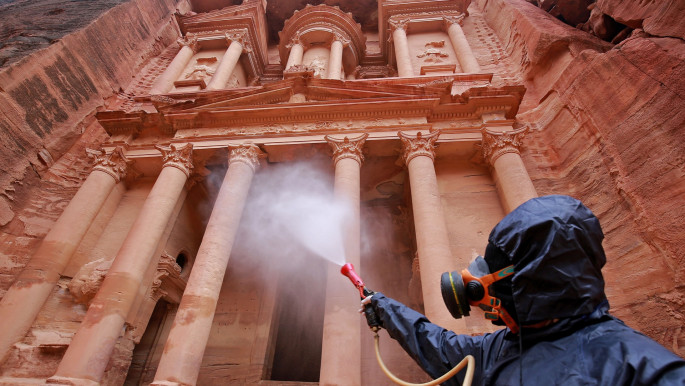 |
| Read also: How have Jordan's students adapted to online learning during Covid |
As a pedagogical method, online teaching has its limits.
The Saifi Institute was designed as an in-person experience which cannot be replicated virtually.
"We all still want the human touch," says Dirani. "This creation was made on purpose as a whole idea. Art, music, involve the whole community."
Nydell views the online option as an interruption which has disadvantaged an entire generation of language learners.
A linguist for the US Foreign Service Institute and the Department of State, Nydell wrote a series of books for the Diplomatic Language Services about learning different Arabic dialects. Nydell values online learning as a supplementary tool that can in no way replace an in-person experience.
"If we don't have mobility we can't teach it. This is a spoken language back and forth," she said. "How are you going to teach people the art of conversation and gestures if it is not real?"
 |
We all still want the human touch... This creation was made on purpose as a whole idea. Art, music, involve the whole community |  |
The Levantines and the Egyptians
The Arabic language landscape can appear to the outsider to be rather confusing. Arabic divides between Modern Standard Arabic, or MSA, and the spoken dialect.
MSA is the designation for the language used in formal settings, including in the media, education, law, correspondence (verbal and written) and literature. The language is standardised across the whole Arab world.
Dialects, on the other hand, can vary between country and region. They bear witness to the history of the area and its contact with different cultures.
Moroccan, Tunisian and Algerian Arabic, for instance, have been influenced by the language of the native Amazigh population as well as Latin, French, Spanish and Turkish (Ottoman).
Iraqi Arabic has Kurdish, Persian and Ottoman Turkish loan words. Dialect is spoken day to day and – increasingly – also in the public sphere in less formal settings or where the speaker is targeting a specific audience.
With training in MSA, the student can gain access to the written and formal dimension of all Arabic-speaking societies. With dialect, the student can engage directly with local communities.
While most established language schools teach the formal language, the Saifi experience has shown that students want to learn dialect.
Nydell says that dialects are "easier, more useful, more fun and more social." To learn a dialect, students will need to travel and interact with their environment. They will therefore be returning to the Middle East before long and where they study will likely be determined by which dialect they want to learn.
Nydell believes that the most useful dialects to learn are Egyptian and Levantine. One reason for this is based on geography: the centre of the Arabic speaking world is Egypt and the Levant.
The Egyptian dialect gained prominence through the export of Egyptian film and music, which were popular throughout the whole Arabic speaking world from the 1940s onwards, combined with the influence of Arab nationalism, driven by Egypt. This brought their vernacular to households across the Middle East and North Africa.
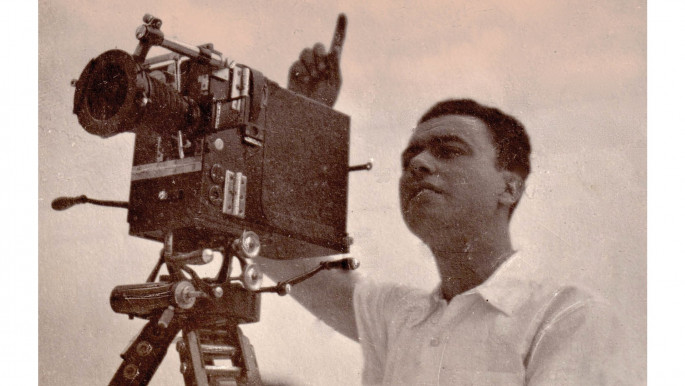 |
| Read more about Togo Mizrahi: Egyptian cinema's stateless pioneer |
Aligned with this is the high esteem in which the Al Azhar University in Cairo, the centre of learning for Sunni Muslims, has traditionally been held and which still draws learners to Egypt.
For Western students, the Al-Kitab series of Georgetown University was the standard curriculum for generations of learners and taught some Egyptian as its dialect of choice, alongside the formal language.
In the last 15 years, the Syrian dialect has, arguably, overtaken the Egyptian dialect amongst the younger generations, as it has been the primary language for dubbing a popular Turkish television series.
Two of these include Gümüş – called Noor in Arabic – and Magnificent Century, released in Arabic as Harim al-Sultan.
These melodramatic series enjoyed unprecedented success across the Arabic speaking world and were watched from Morocco to the UAE, bringing the Syrian dialect to these households.
The finale of Noor recorded 85 million viewers, and was especially popular with women. More and more foreign series are now using the Syrian dialect for dubbing.
For the Arabic learner, this means that with a training in one of these dialects – as well as proper instruction in the formal language – the learner will be widely understood in different Arabic-speaking countries.
 |
The rise in the use of dialects can also be observed online. Social media platforms encourage comments in the urban tongue and provide a platform for citizen journalism from those less versed in the formal language |  |
While this is good news for Saifi's brand, unfortunately the school will not be reopening its doors anytime soon.
"Even if you find the hope to rebuild you cannot get your money out of the bank," said Dirani.
The economic crisis gripping Lebanon has resulted in strong devaluation of the currency. Where the US dollar used to be pegged at 1:1,500 Lebanese pounds, as of mid-March, the pound was being traded at close to 1:15,000 on the black market.
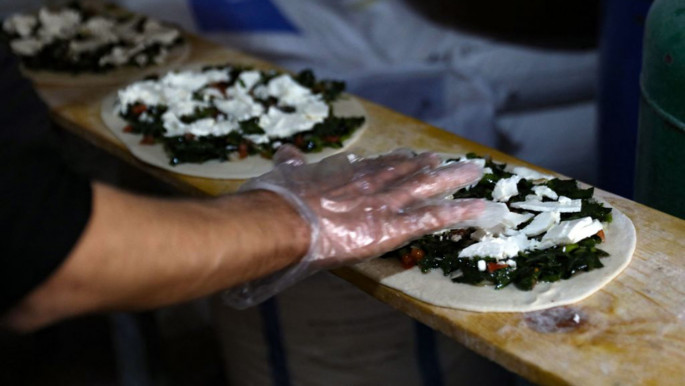 |
| Read more on Lebanon's economic crisis |
Labourers are demanding to be paid in US dollars and citizens cannot access their money from the banks.
Dirani will wait until the current trajectory of the crisis becomes clearer before she decides on the future of her school.
The unstable political and economic situation in Lebanon might also prompt learners to look elsewhere for their studies.
The same is true for Syria and Egypt, which had been popular places to study Arabic in the past. Syria is still embroiled in a civil war that began over a decade ago.
Egypt too is weathering its own economic and security crisis, especially since the uprisings in 2011 which toppled the Mubarak government. Added to this, incidents such as the murder of the Italian doctoral student, Giulio Regeni, in 2016, caused an international outcry and fears for the safety of other foreign students. Thus, despite the useful dialect, political uncertainty may keep learners away.
Jordan has long been a favourite location for learners. It is an established centre for language learning, with a number of materials already available to teach the local dialect and a strong tradition in the formal language.
Many schools have existing partnerships and study-abroad programmes. Qasid Institute, for instance, has partnerships with Harvard University, University of Oxford, Georgetown University, SOAS, the United Nations, and numerous departments of foreign affairs.
Jordan is the most stable country in the Levant and is likely to remain so. It is, however, somewhat less vibrant than its neighbours and some in jest, call it the Hashemite Kingdom of Boredom.
Jordan is further considered a more expensive and conservative option and the divide between expat and local is felt more strongly than in neighbouring countries, leading some to report it being difficult to meet locals.
A third option
While Nydell is clear that it is most beneficial for the learner to focus on the Levantine or Egyptian dialect, writer and translator, Sam Sweeney, presents a third option.
Sweeney argues that if the security situation makes Egypt and Lebanon unappealing, students will be forced to look elsewhere.
The Iraqi dialect bears consideration as Iraq holds an enduring importance and interest historically, politically and economically.
"As the landscape of Arabic language learning changes, I think Erbil could be one of the places that maybe wasn't on people's radar," he said.
"For an Arabic student, there is a lot here. Erbil offers the opportunity to study Arabic alongside other languages and cultures of the region."
 |
As the landscape of Arabic language learning changes, I think Erbil could be one of the places that maybe wasn't on people's radar |  |
Erbil is the capital of the Kurdistan Region of Iraq, an autonomous region which lies in the north of the Federal Republic of Iraq.
Northern Iraq is known for its hyper-diversity of religions and ethnicities, all living in close proximity. While Iraq tends to be blanket-labelled as a crisis zone, Kurdistan is often tarred with the same brush.
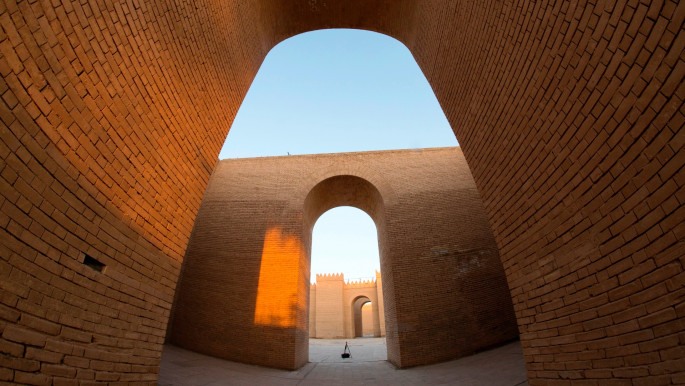 |
| Read also: Why Baghdad's new visa system could emulate Iraqi Kurdistan's success |
Sweeney highlights that Erbil is, in fact, both liveable and safe, historic and modern.
While the language of the city is predominantly Kurdish, there is an Arabic-speaking quarter, and the city is a hub for Arabs from other parts of Iraq, as well as for many Syrians.
The Kurdistan Region of Iraq, where Erbil is located, is autonomous, and Westerners can enter with a visa on arrival. Recently, the Pope held an historical mass in Erbil, which also put it on the map.
Read also: Pope celebrates largest mass of historic Iraq trip
Sweeney recently co-founded a language school in Erbil which teaches the Iraqi dialect. In a virtual language school desert, he believes that there is a captive market of NGOs, business people, scholars and journalists who are working in Iraq, many of whom will want to learn how to communicate with locals.
Sweeney is currently trialling his own curriculum, inspired by his experience with learning Arabic in Syria. It is his hope that the language offer finds resonance with the local market, and that he and his colleagues can grow the school enough to encourage students to choose Erbil as their Arabic learning destination of choice.
The shifting landscape of the Arabic language
In the meantime, the option for Arabic learners to come into contact with the languages and cultures of the Middle East is constantly growing. Whereas Egyptian cinema once dominated the Arabic-speaking world, television shows in other dialects are emerging, and foreign television is being dubbed.
The launch of MBC Iraq in 2019 offers TV shows dubbed in Iraqi Arabic. Nydell reminds, too, that the yearly TV series produced for the month of Ramadan in Arabic-speaking countries, called Ramadaniyat, are also filmed in local languages.
"Even in places like the Gulf, they do produce Ramadaniyat. It is in a local dialect and often about local families and ongoing or historical events," she said.
The rise in the use of dialects can also be observed online. Social media platforms encourage comments in the urban tongue and provide a platform for citizen journalism from those less versed in the formal language.
Dialect is also becoming available as a written resource. Nydell alerts to a Moroccan newspaper Khbar Bladna (News of Our Land) which was published entirely in the Moroccan dialect, Darija, and became popular for people who could read, but did not know MSA well.
It ran for four years and was distributed in 26 towns. Antoine De Saint-Exupéry's The Little Prince exists in Iraqi translation and there is also a New Testament in Lebanese. These resources are of great value to learners of the language and also testify to the growing acceptance of dialect as a legitimate form of communication.
The shift towards making dialects more visible is a key reason Sweeney argues that Iraqi is not necessarily a peripheral dialect.
"There is an increased interest in the Iraqi dialect in the Arab world. Pop culture and media are more common now in the Iraqi dialect compared to ten years ago," he said.
 |
There is an increased interest in the Iraqi dialect in the Arab world. Pop culture and media are more common now in the Iraqi dialect compared to ten years ago |  |
Where do we go from here?
This article aspires to contribute to the conversation around where and how Arabic learners will learn after the pandemic. What has become clear is that, while the formal Arabic language is essential for proper training, learners have other needs, too.
"As a practical reality, you do have a lot of people who aren't trying to be scholars of Arabic, they just want to be able to get around for work. I think that the rise of dialects is a phenomenon that is going to only increase in importance," said Sweeney.
Whatever the future holds for Arabic language learning, it is clear that between the coronavirus, instability in the region, the Beirut explosion, and other events, the landscape will not be the same as it was over the past few decades.
Sarah Markiewicz is the Consultant for Religion, Dialogue and Peacebuilding.





 Follow the Middle East's top stories in English at The New Arab on Google News
Follow the Middle East's top stories in English at The New Arab on Google News


